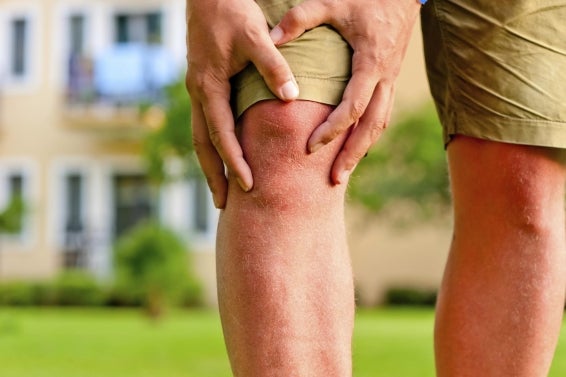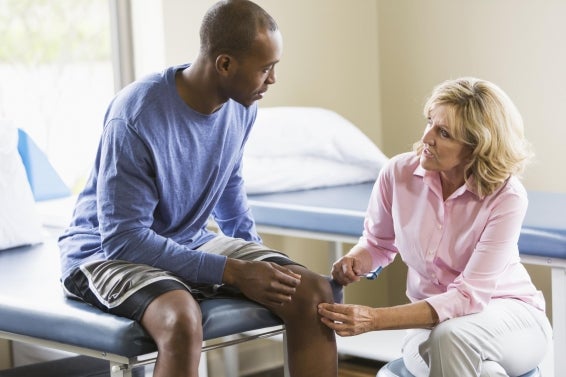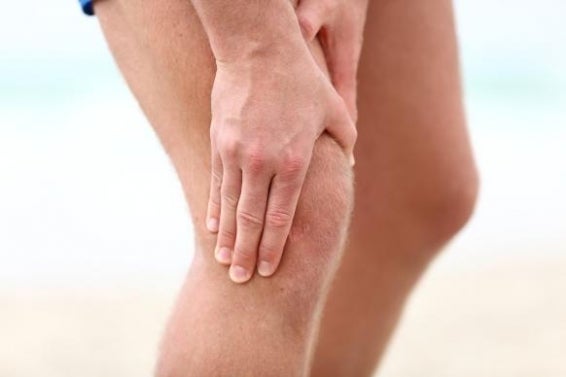View Providers
Orthopedic specialists have special training in the care
of bones, joints and muscles. While a primary care physician may be able to
treat general aches and pains, certain symptoms and conditions require the
expertise of an orthopedic doctor. These specialists also perform orthopedic
surgery, such as joint replacements. Here are just a few of the reasons you may
need to see an orthopedic specialist.
Sciatica
Sciatica is low back pain that extends through the leg and
even into the foot. The cause is often a slipped disc, when one of the rubbery discs
between two bony vertebrae in the spine is bulging past where it should extend.
This can aggravate the sciatic nerve and cause serious pain. In 90% of cases,
the pain goes away with time. However, if sciatica pain lasts more than six
weeks, see an orthopedic doctor to discuss treatment options.
Lower Back Pain
About 80% of adults suffer low back pain at some point. It
can be a dull ache or a sharp pain. Many causes can trigger low back pain, such
as lifting a heavy object, age-related spinal changes, and a sedentary
lifestyle. Most low back pain lasts a few days to a few weeks, and then goes
away. If yours lasts more than a few weeks, it’s time to see an orthopedic
specialist. Also see a doctor if low back pain is accompanied by sudden weight
loss, fever or chills, which may indicate a more serious condition.
Repetitive Strain
Injury
Repetitive strain injuries result from repetitive and
forceful motions, poor posture, and other hazards that overuse certain muscles.
These injuries usually affect the back, neck, arms and hands. A common
repetitive strain disorder is carpal tunnel syndrome, which affects the muscles
and nerves of the hand. Common symptoms of repetitive strain injuries include tenderness,
stiffness, or tingling in the affected area. You don’t need to live with this
pain. A correct early diagnosis from an orthopedic doctor can get you
effective treatment and help prevent further injury.
Hip Pain
You may feel hip pain within your hip
joint itself, on the outside of your hip, in your thigh, or in your buttock. If
hip pain is minor, then rest, pain relievers, and ice or heat may help.
However, see an orthopedic doctor if the pain continues or gets worse. You may
have damage due to arthritis or injury that requires professional treatment. With
sudden, intense hip pain or if you suddenly can’t stand on your leg or move it,
go to an emergency department right away.
Hip Replacement
If your hip causes you pain during your daily activities,
and other treatments haven’t worked well, then you may need hip replacement
surgery. Orthopedic surgeons perform hip
replacement surgery to replace a damaged or diseased hip with an artificial
joint. The healthier and more active you are before the operation, the better
your results with the surgery are likely to be. Most people who have this
operation find it reduces their pain and increases their ease of movement,
allowing them to enjoy an improved quality of life.
Knee Pain
Knees are complex joints, and knee pain
can have a variety of causes. Knee pain can result from diseases, such as arthritis,
as well as injuries during sports or other physical activities. You may injure
your knee as the result of a blow or a movement that strains the joint beyond
its usual range of motion. Over time, knees also develop damage gradually, due
to normal wear and tear. Problems with your feet or hips can also injure your
knees. For chronic or severe knee pain, an orthopedic specialist can diagnose
the cause and suggest a treatment plan. Treatments may include physical therapy
to strengthen the knee and medications to relieve pain. If these become
ineffective, your orthopedic doctor may suggest knee replacement.
Knee Replacement
If your knee is badly damaged or previous treatments are
no longer effective, an orthopedic surgeon may perform knee replacement surgery.
This procedure replaces the damaged knee with an artificial joint. Total knee
replacement is a complete resurfacing of the damaged knee. The surgeon removes
damaged cartilage and bone and replaces them with man-made materials. In a
partial knee replacement, the surgeon replaces part of the joint. Recovery from
knee replacement surgery can take from three months up to a year, depending on
your procedure.
Shoulder Pain
Pain in or around the shoulder can be caused by disease or
injury to muscles, tendons, or the rotator cuff joint. Arthritis, dislocations,
and overuse injuries can cause pain, swelling, and limited range of motion. See
an orthopedic doctor for shoulder pain lasting more than 2 to 4 weeks, or pain
that involves swelling or discoloration. Sudden crushing shoulder pain can
signal a heart attack. Call 911 right away if you experience this type of pain.
Frozen Shoulder
With frozen shoulder, the shoulder stiffens, making
movement painful. The problem has no clear cause. Usually, the pain is mild to
start but grows worse as months pass. A frozen shoulder can make it hard for
you to raise your arm or move it behind you. In time, your shoulder may grow so
stiff it will barely move. An orthopedic specialist can diagnose frozen shoulder
and offer treatments, including gentle exercises, heat, and medication. If these
don’t provide relief, shoulder surgery may be an option.
For any pain or
symptom that’s affecting your bones, joints or muscles, an orthopedic
specialist has the training, experience and knowledge to make an accurate
diagnosis and find the treatment that’s right for you.





